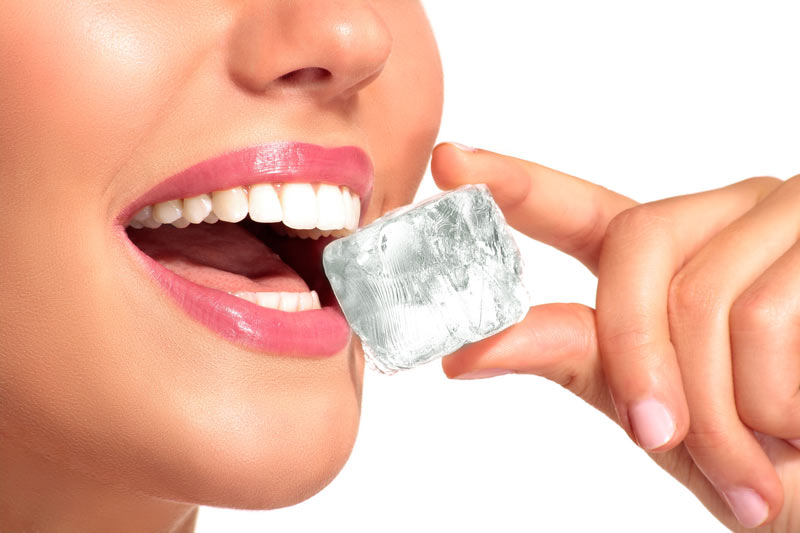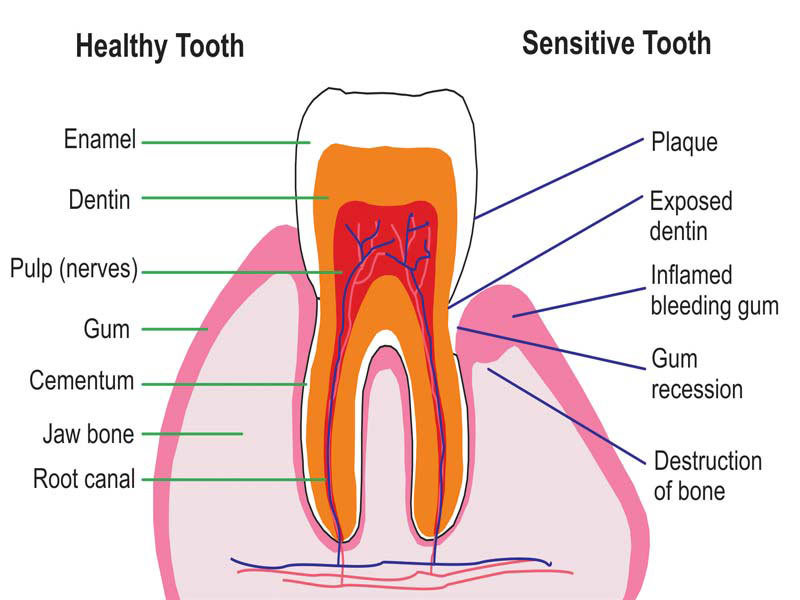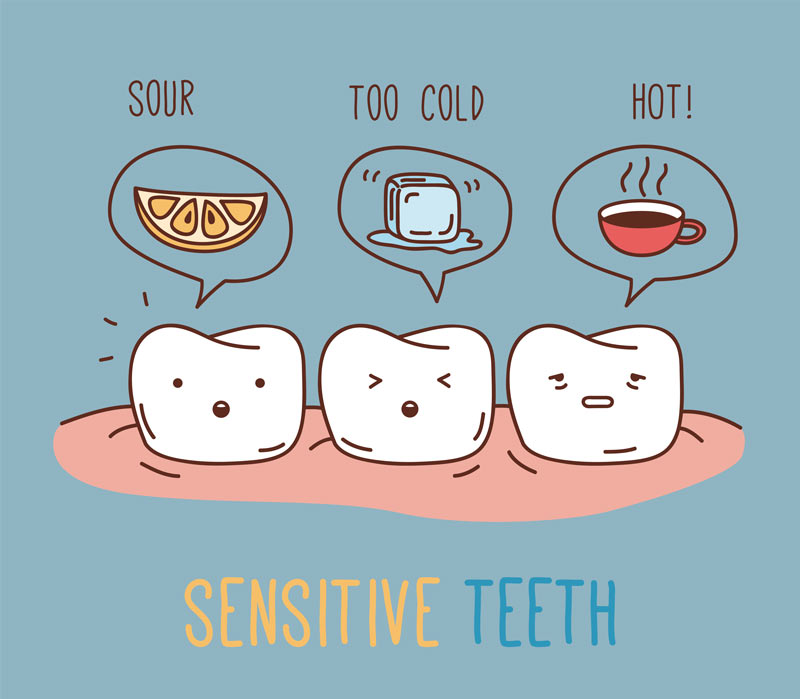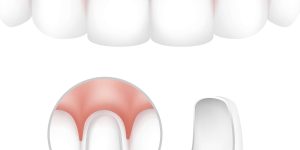Sensitive teeth are defined as having an uncomfortable feeling in your tooth or a sharp pain after eating something cold, hot, or sweet. This discomfort happens due to different causes like acidic erosion of the teeth. This problem can affect one tooth or several teeth depending on the cause. Tooth sensitivity is either acute or chronic, but it can be treated in both cases. At Pearl Dental Group, recognized for having the best dentist in Toronto, we prioritize the prevention of tooth sensitivity through expert care and innovative treatments.
In this comprehensive guide about dealing with tooth sensitivity, you can get all the information about this issue and how it can be cured.
Tooth Sensitivity Symptoms
Tooth sensitivity symptoms vary from mild discomfort to severe pain. These symptoms include discomfort or sharp pain in your tooth after it is exposed to:
- Cold or hot food and beverages like iced tea or hot coffee.
- Sugary food and beverages like pastries and sweets.
- Acidic foods and beverages like certain fruits and carbonated drinks.
- Cold air.
- Alcohol-based mouthwashes.
The tooth’s root pain and discomfort may also appear after flossing and brushing your teeth regularly. These symptoms may become worse over time, so it is better to visit a dentist as soon as these lingering symptoms appear.

What Is Tooth Sensitivity and What Does It Feel Like?
Tooth sensitivity, or in other terms “dentin hypersensitivity,” is one of the dental issues that is so common and experienced by many people. In general, tooth sensitivity happens when the dentin, which is the underlying part of your teeth, becomes exposed. To understand this better, it is good to know that our teeth’s crown includes four parts: enamel, cementum, dentin, and dental pulp, which contains the tooth root nerves. Enamel erosion will lead to the dentin becoming exposed, and stimulants like cold affect the tooth’s nerve more than normal. This problem can happen after enamel erosion or gum recession. When the dentin becomes exposed to heat, cold, or sweetness, you might feel a sharp pain in your tooth, which feels like it is coming from the tooth’s nerve. This pain can be mild, like just a feeling of discomfort or very sharp.
Tooth sensitivity might be a sign of an underlying problem like dental pulp infection or gum recession. Visiting a dentist is necessary when you have one or more sensitive teeth that haven’t improved after several days. At Pearl Dental Group, our renowned North York dentists focus on the prevention of tooth sensitivity using state-of-the-art techniques and personalized care.
Read More: Causes of toothache
Call our Toronto Dentist’s Office now to schedule an emergency appointment. Pearl Dental Group Toronto Dentistry offers a wide range of comprehensive dental services to make your smile more beautiful.


Causes of Teeth Sensitivity
After experiencing tooth sensitivity’s discomfort and pain, you might wonder why your tooth is sensitive. The main causes of tooth sensitivity are enamel erosion and gum recession, which lead to your dentin becoming exposed to stimulants. There are also other causes that we will discuss later.
Causes of Enamel Erosion
- Excessive consumption of sugary or acidic foods and beverages: Teeth enamel is sensitive to acids. This chemical will disrupt the teeth’s enamel over time. Sugary and sweet food and beverages will lead to the production of acid as a secondary metabolite. This acid made from sweet food acts like acidic foods and beverages like fizzy drinks and erodes the teeth’s enamel.
- Acid reflux: This gastric problem will lead to dental issues by exposing your mouth to acids coming from your stomach. This acid will cause enamel erosion, leading to tooth sensitivity and cavities.
- Reduced saliva: Your saliva can wash the acid from your teeth and neutralize it. Problems with saliva production are due to different issues like some drugs, genetics, and salivary gland issues. Less produced saliva may lead to bacteria overgrowth and the production of more acids.
- Lack of a proper dental hygiene routine: Regular flossing and brushing are necessary to wash away remaining foods and acids and restrain bacteria growth, which causes enamel erosion and, eventually, teeth sensitivity.
- Teeth grinding: Bruxism or teeth grinding is a very destructive habit. This issue leads to dental wear and tear and enamel erosion.
Since enamel erosion takes a long time, it’s better to prevent these causes to avoid teeth sensitivity.
Causes of Gum Recession
- Gum disease: Gum diseases, which are also known as periodontal disease, happen when overgrown bacteria and bacterial plaque lead to infections and destroy gum tissues.
- Aggressive teeth brushing: Using a hard brush or putting too much pressure while brushing your teeth can lead to gum recession.
- Neglected dental hygiene: Not having a regular routine of flossing and brushing your teeth may lead to increased bacteria and, eventually, gum disease.
- Hormonal changes: In pregnant women or those who use hormonal drugs, gums become more sensitive and more prone to gum disease.
- Smoking: Smoking is a bad habit causing the production of bacterial plaque and leading to gum recession.
Read More: Most Common Causes of Gum Disease

Other Causes of Teeth Sensitivity
- Teeth bleaching
- Dental pulp infection
- Cracked or chipped tooth
- Dental filling, especially with metallic materials
At Pearl Dental Group, our dedicated family dentists in North York provide comprehensive care for patients of all ages.
Teeth Sensitivity Treatment Options
If you are already suffering from tooth sensitivity, it is recommended to visit an experienced dentist as soon as possible. Tooth sensitivity might be a sign of a bigger problem or lead to worse dental issues. The dentist will design a treatment plan according to your specific issues. Tooth sensitivity treatment may include:
- Changing Your Oral Hygiene Routine
Your dentist may recommend you a dental hygiene routine specified for your issues. This routine contains regular flossing and teeth brushing, as expected, along with mouthwashes for sensitive teeth. Using a soft toothbrush and desensitizing toothpaste can help reduce the tooth’s discomfort and prevent further problems. The dentist may also prescribe fluoride for you to strengthen your tooth enamel and reduce sensitivity.

When your tooth has become sensitive due to its root exposure, your dentist can apply composite resin on the sensitive area and fix the issue.
A sensitive tooth with severe sharp pain after consuming something cold, hot, or sweet may indicate dental pulp infection, which needs root canal therapy. This treatment is considered one of the most effective cures for sensitive teeth.
- Gum Surgery
Gum surgery might be needed if tooth sensitivity is a consequence of gum recession. Gum diseases can be healed with simpler treatments in the early stages, but when the amount of gum recession becomes considerable, the dentist recommends gum surgery. In this procedure, a small amount of soft tissue will be taken from the roof of the mouth and will be attached to the area needing more gum tissue.
- Prescribing Dental Night Guards
Tooth sensitivity can be due to teeth grinding, which leads to enamel erosion and tooth breakage. Teeth grinding complications can be solved using a mouthguard to protect the teeth from bruxism.
At Pearl Dental Group, our emergency dentists in North York are committed to the prevention of tooth sensitivity, offering prompt and effective care when you need it most.
How to Prevent Tooth Sensitivity?
Prevention is always better than treatment. Instead of suffering from pain and discomfort and having to pay for treatments, you can get information about tooth sensitivity causes and stop them. To prevent sensitive teeth, you should prevent enamel erosion and gum recession.
- Have a proper oral hygiene routine.
- Use a soft toothbrush and change it when it becomes worn.
- Restrain from sugary and acidic foods consumption.
- Drink more water.
- Use fluoride products to strengthen tooth enamel.
- Quit destructive habits like smoking.
- Visit the dentist to diagnose and fix your dental issues, like cavities, before they cause tooth sensitivity.
At Pearl Dental Group in Toronto, our dentists specialize in the prevention of tooth sensitivity through personalized care and advanced treatment options.

Dealing With Tooth Sensitivity in Conclusion
Tooth sensitivity can be really annoying and difficult to deal with if left untreated. Its symptoms can range from mild discomfort after brushing your teeth to severe sharp pain after breathing cold air through your mouth. Tooth sensitivity is due to dentin exposure to heat, cold, and sweetness, which can lead to the root nerve’s excessive sensitivity to these stimulants.
The easiest way to prevent this problem is to maintain your oral hygiene along with having a healthy diet and lifestyle. Since tooth sensitivity might be a sign of other dental complications, the treatments differ from case to case. It is highly recommended that you visit the dentist when your tooth sensitivity doesn’t go away after several days to fix the issues before they create more complicated dental problems. At Pearl Dental Group, our skilled cosmetic dentists in Toronto specialize in the prevention of tooth sensitivity while enhancing your smile with advanced cosmetic treatments.
Read More: Yellow Teeth in Kids
About Us
Pearl Dental Group offers a comprehensive range of dental services, including teeth whitening, root canal treatments, dentures, dental implants, dental crowns, gum disease therapy, dental veneers, dental bonding, dental bleaching, pediatric dentistry, dental fillings, tooth extractions, and more, all delivered with the highest quality and affordability.

Booking An Appointment
Book an appointment with Pearl Dental Group today and experience top-quality dental care in a friendly and professional environment.
Frequently Asked Questions About Tooth Sensitivity
After considering your symptoms and checking your teeth and gum appearance, the dentist will examine your tooth sensitivity using special tools. X-rays might also be needed to find underlying causes like tooth cavities or pulp infections.
Tooth sensitivity may last from a few hours to several months, depending on its cause. You can stop lingering tooth sensitivity by visiting a dentist and having proper treatments.
Hard bristle toothbrushes can erode tooth enamel and irritate your gums, and these two are the leading causes of tooth sensitivity. To prevent tooth sensitivity, it’s better to use soft bristle toothbrushes regularly.
Tooth sensitivity to heat, cold, and sweets might be caused by a dental pulp infection, which needs root canal therapy and, after that, tooth filling. The root canal is a very effective treatment for tooth sensitivity as it removes the tooth’s nerves.








